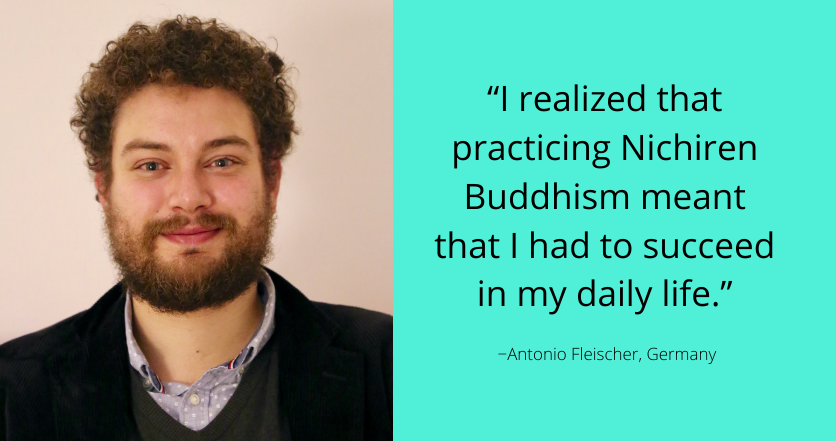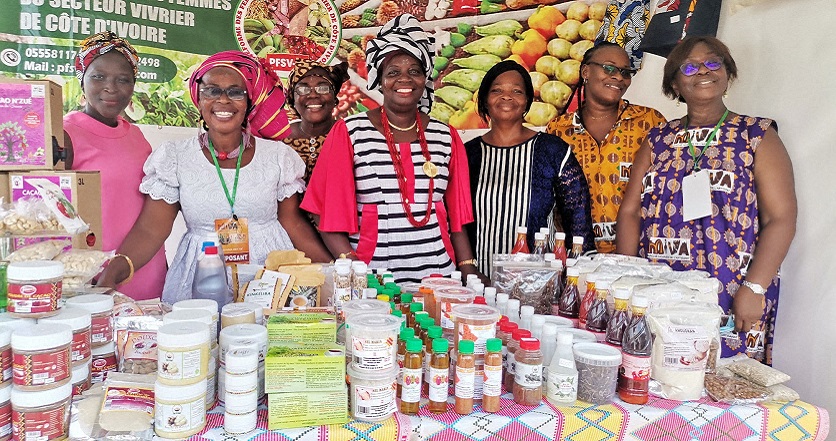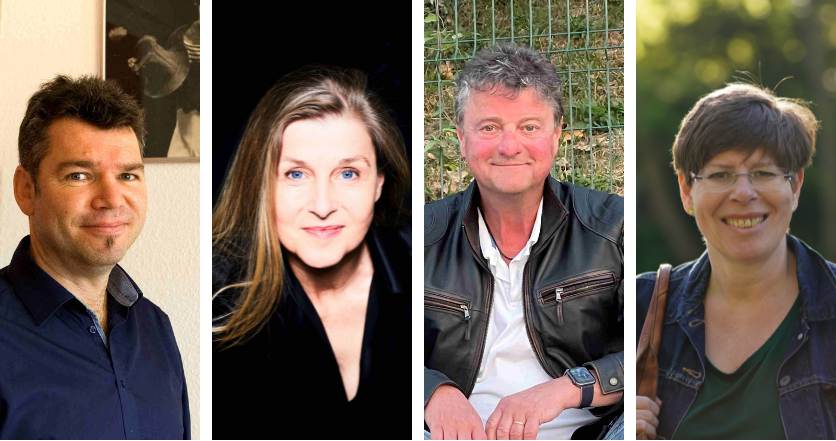Changing the Game
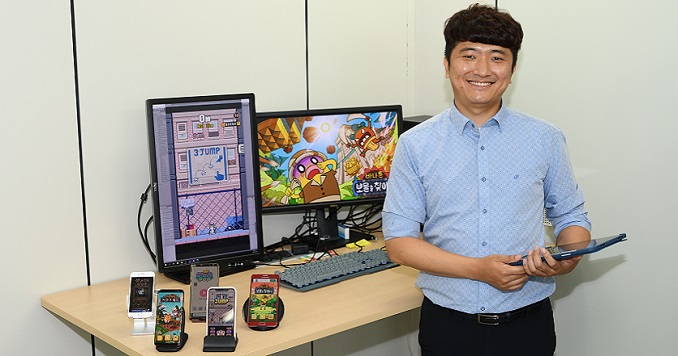
From disenchantment with the gaming industry to leading a team that produced a game with over 20 million downloads, Kim Kyung Won from South Korea describes what was important to him on a career path that began with a childhood love of gaming.
When I was a child, I loved gaming more than anything else.
I loved it so much that, unlike other children, the more I got into it, the more I focused on how the games could be improved. I even got frustrated, because I had so many ideas on how to enhance them. When I was in high school, this frustration eventually led to my dream of becoming a game developer.
I learned about the Soka Gakkai through my family and a book called Discussions on Youth written by President Daisaku Ikeda, it said:
“It’s not important how you compare yourself to others but how you compare yourself to whom you were yesterday. If you see that you’ve advanced even one step, then you’ve achieved a victory.”
“There is a saying that people will not exceed their dreams. That is why you should have big dreams.”
At the time, my family was struggling financially and had to move from house to house. I felt extremely hopeless.
These passages shone a ray of light into my life.
I began to feel hopeful again, and began to participate in discussion meetings and Soka Gakkai activities.
I loved gaming more than anything else.
When I chanted about what I really enjoyed and wanted to do, games popped into my mind. I decided to take action toward realizing my dream of becoming a game developer.
At the time, game development was still a new field. I faced a lot of resistance and skepticism from everyone around me, including my friends and family.
However, I was determined and studied diligently. My efforts eventually led to getting accepted into a university that had a game engineering department. This result, and my progress as a game developer, helped to change the perspective of those people toward my field, and they became supportive of what I was doing.
When We Hit a Wall and It Opens a Window
A turning point in my career came when I was in my final year of university. I attended a game development workshop and had the great fortune of being immediately scouted and hired by a representative from a Busan-based gaming company.
At the time, due to the rise of the smartphone, the global demand for mobile games had increased. After joining the company, I concentrated on the development of these apps and was able to establish a successful track record, and both my supervisors and colleagues recognized my work ethic.
After a while, however, I hit a wall. Concerns about the negative aspects of gaming—its addictiveness and the detrimental effect of violent content on young people—brought the industry under close scrutiny. Consequently, I was met with a lot of resistance whenever I talked about my work.
I began to feel that my job was meaningless. It seemed to me that I was drifting away from what I had promised myself at the beginning, to contribute to society.
I realized that I could develop games with positive rather than violent elements.
For the first time, I questioned if I had made the right choice in becoming a game developer. Feeling extremely conflicted, I couldn’t bear it anymore and decided to leave the company and started work in a completely different industry.
Despite this, the fact was that I loved the idea of creating games so much that I couldn’t give them up. I read a huge number of journals related to games and sought out ways to contribute to society.
I realized that I could develop games with positive rather than violent elements, and as a developer, I became determined to create a game that conveyed good values, ones that help to benefit people’s lives.
Possibilities of Nonviolent Storytelling
Chanting Nam-myoho-renge-kyo helped me to take action, which eventually changed my environment dramatically.
As I looked for a new job opportunity, I received an offer from a leading video game company in South Korea to be a general producer in the mobile app team.
Due to a rise in the popularity and use of smartphones, I predicted that interest in “casual games”—games that are easy to play within a short amount of time such as trivia games and word games etc.—would rise.
I therefore conducted research with the goal of developing a game that used nonviolent storytelling, was user-friendly and that anyone could play.
The mobile app that my team created was released in 2015 and turned out to be a huge success. It has had 20 million downloads so far and is ranked as one of South Korea’s top games.
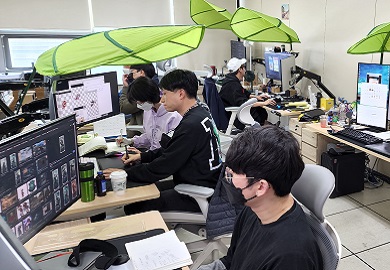
In 2018, I was finally able to establish my own company in Busan, which started with two employees and has since grown to employ nine people.
A game that we developed for children reached more than 20 million downloads. Its distinguishing features are the characters’ comical movements and its unique storyline that conveys the importance of sharing our joy with others.
My company’s games are not only played by people in South Korea but by people all over the world. My goal is to continue to produce games that impart peace and good values.
Adapted from an article in the April 29, 2022, issue of the Seikyo Shimbun, Soka Gakkai, Japan.





